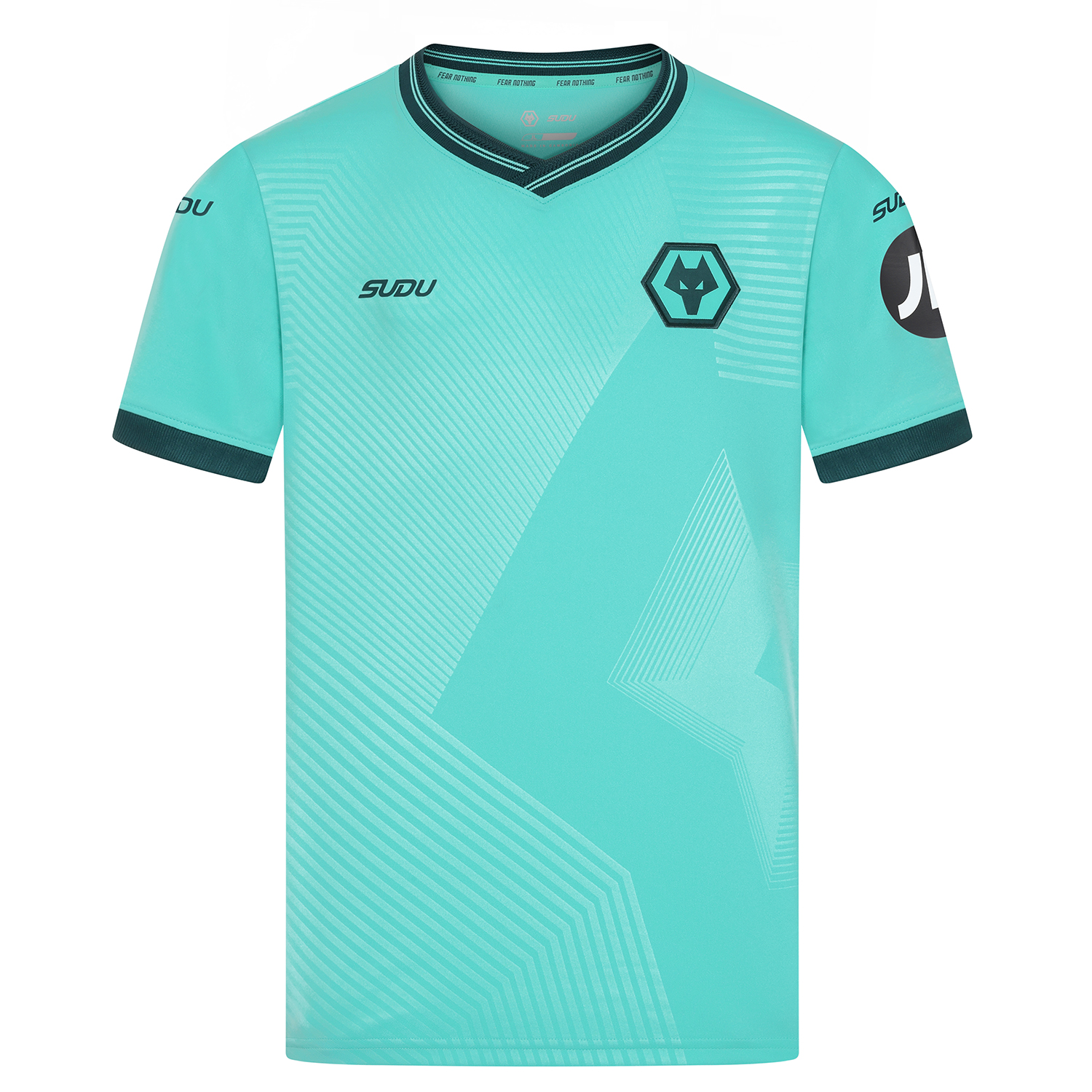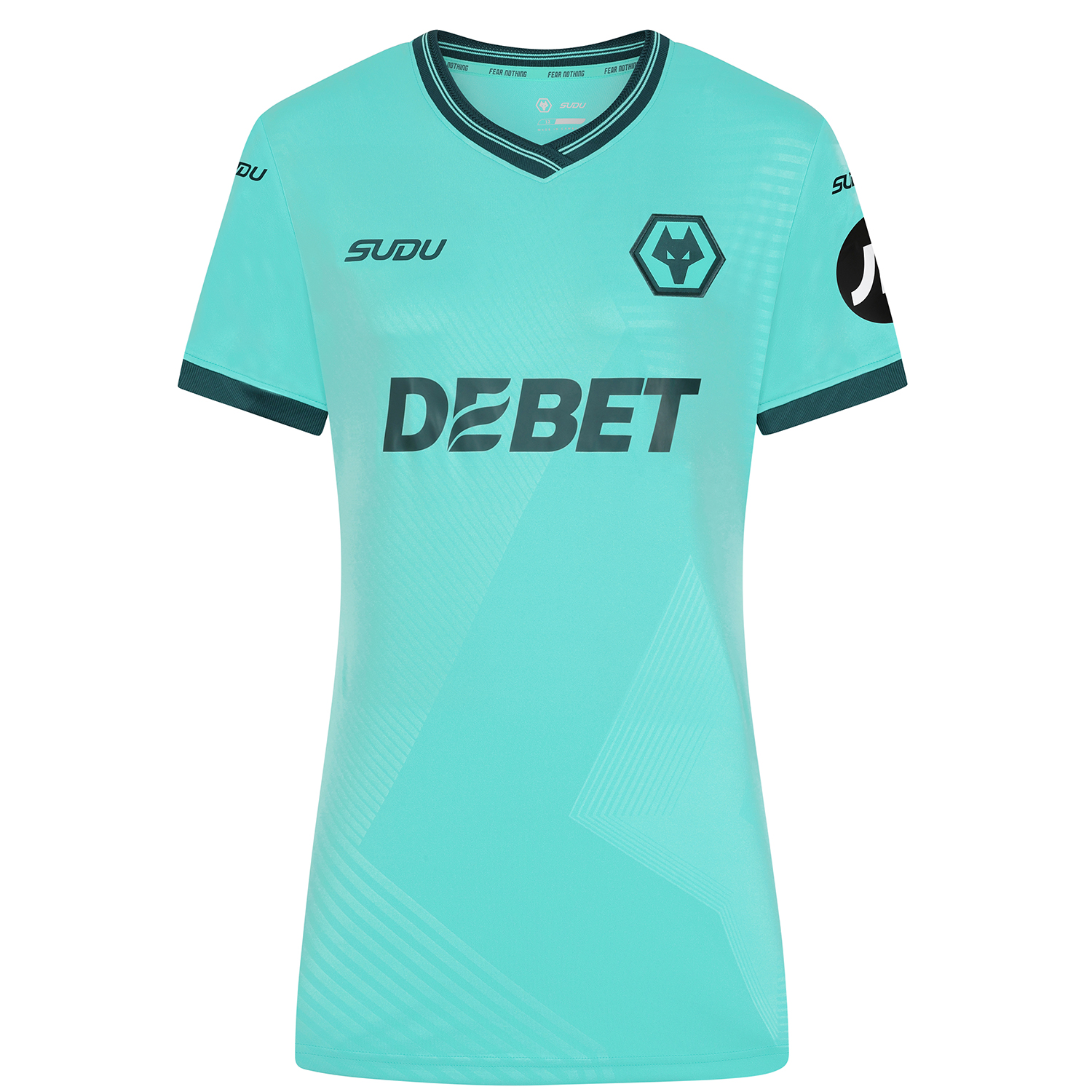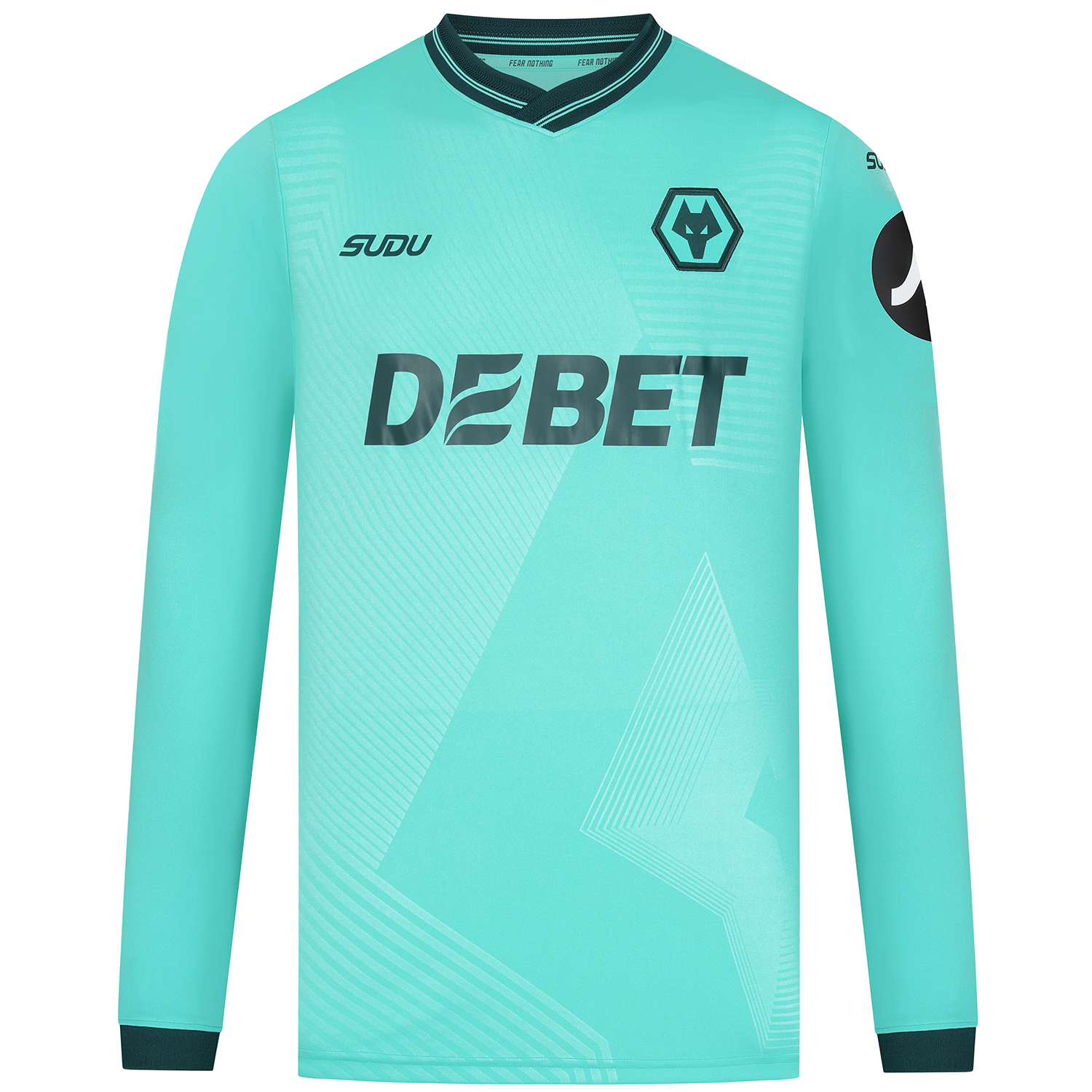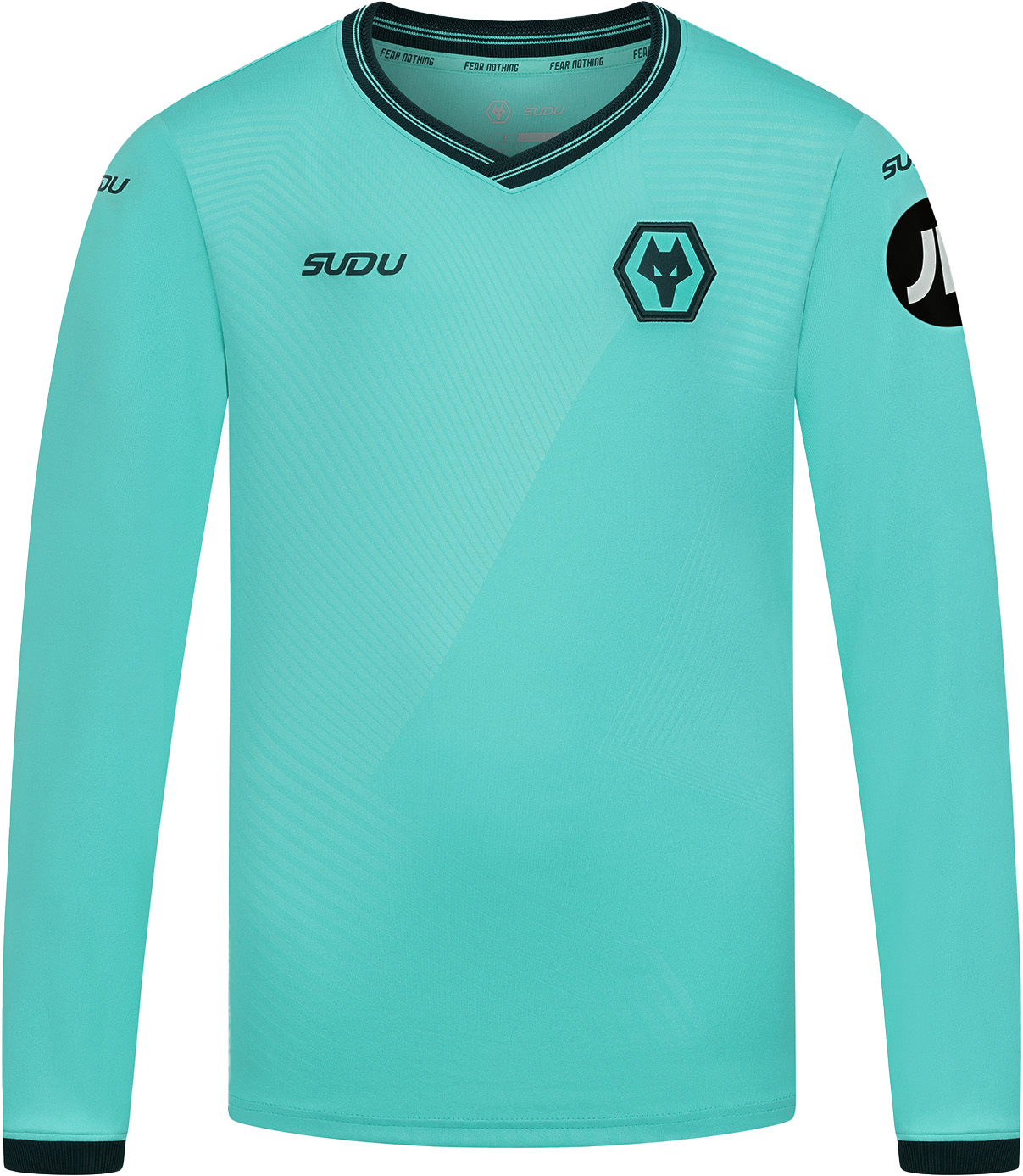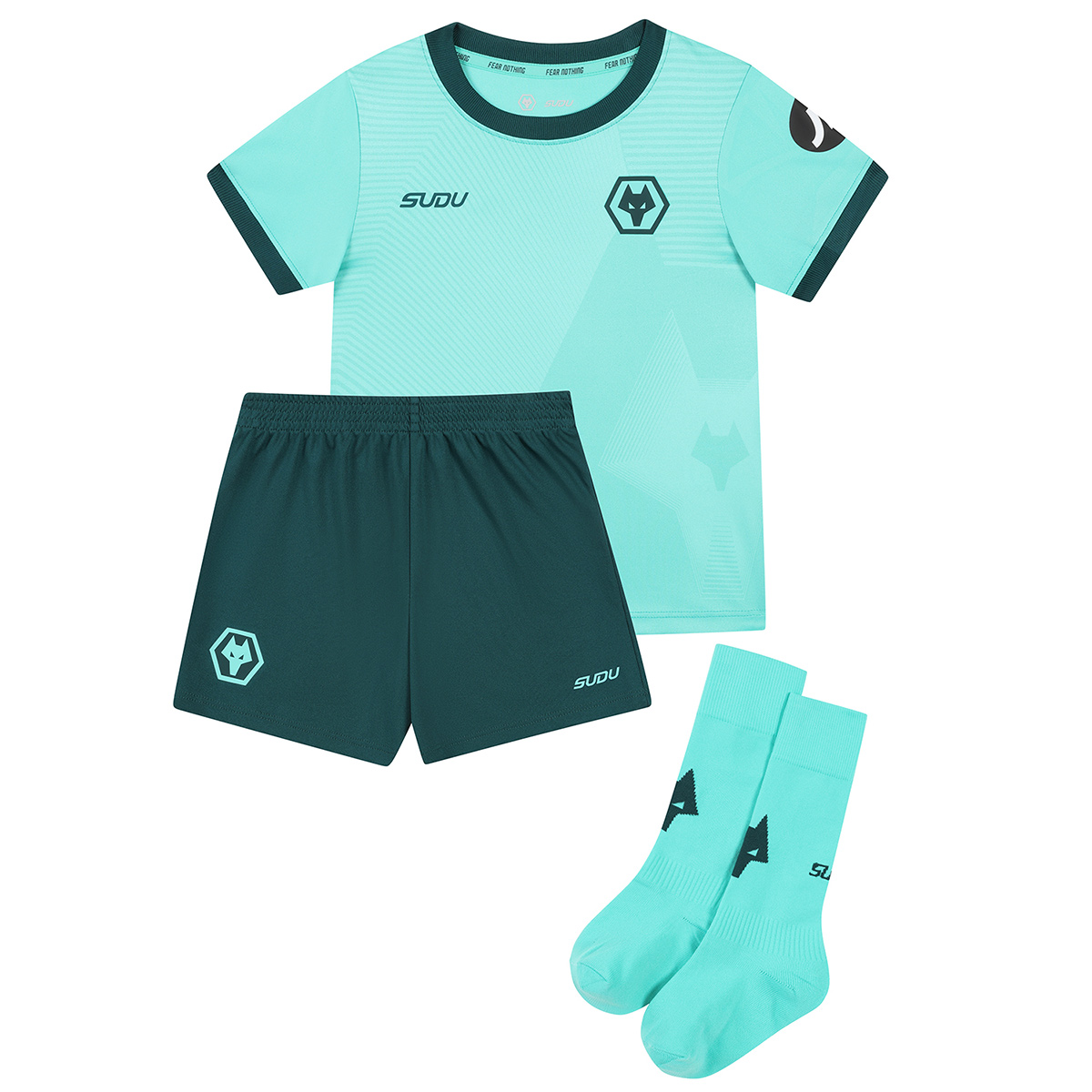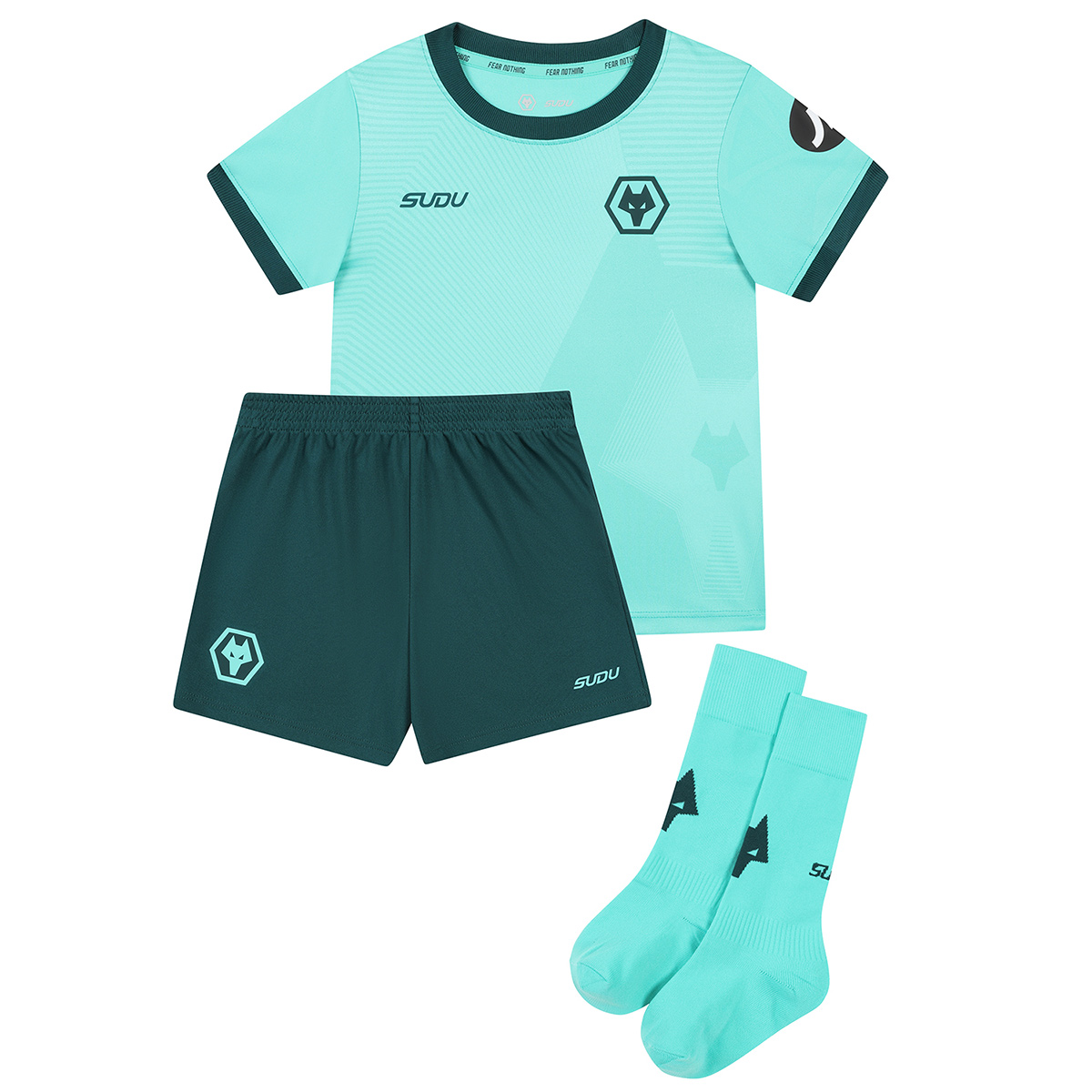New Wolves technical director Matt Jackson sat down for an in-depth interview, covering a range of topics, at Compton Park earlier this week.
Jackson, who first joined Wolves in 2021 and has held various roles since, brings a wealth of experience to the role, having also held senior positions at Wigan Athletic and Grasshoppers, as well as a lengthy playing career.
Having played a significant role in the growth of the academy and women’s department in recent years, he will now support executive chairman Jeff Shi, alongside Matt Wild, Phil Hayward and Max Fitzgerald as the club’s football leadership team.
Sitting down at the club’s training ground, Jackson discussed a new era for the club under Rob Edwards, including the approach to recruitment, his vast experience in the game and the roles of the academy and women’s team within the club.
Below, wolves.co.uk presents a full transcript of Jackson’s first interview as technical director.
Matt, we spoke about a new era at Wolves recently, now you take over as technical director, how much are you looking for to these new responsibilities?
“Yeah, it's a great challenge for me and a real honour to help the club. I've obviously been here for nearly five years now, and I've worked with some really good people. Scott [Sellars] first brought me in and then I worked for ‘Hobbsy’ [Matt Hobbs]. After that, obviously, I worked closely with Domenico [Teti] up until recent times, so I've seen all the departments of the football club. I had a brief spell going over to Grasshoppers, which was a brilliant responsibility for me, and a tough challenge, but one we came through pretty well at the time, but this is a whole new challenge again.”
You talk about that journey, can you talk us through it, and how your responsibilities have changed over the years?
“I came in originally to work with Seyi [Olofinjana] on the marketing of players side, just the exits, really. Out of that, we built the loan department up into what it is today, with the work that goes into that and support process around those players, working on player development, trying to bring a little bit more of a process into that, something that the players could believe in, and gave the club a bit of structure. I think that's worked pretty well, we’ve had big numbers of players that have gone out at all different levels, going through the whole pyramid of football, and some really good success stories in there, and I'd like to think that the department has helped develop careers. That quickly moved into helping the processes of recruitment, in terms of the decisions that they were making, putting players forward for assessment from the decision makers who did the actual recruitment from there. That's been transformed, and I know how hard those departments work. Then in recent times, since it came back from Zurich, I was overhauling the academy with Jon Hunter-Barrett. Unfortunately, a by-product of that is that we're starting to lose players to the big clubs, but it shows that everybody in the academy is working hard to produce players, and we expect that to bear real fruit over the next coming years.”
While it is an internal appointment to technical director, how do your experiences, both here at Wolves and elsewhere, set you apart from people who have held similar roles previously?
“I don't think there are too many who have played, had long careers on the pitch, and then done all of the roles off the pitch. Obviously, coaching tends to be a natural progression for players, but I've been the other way really, I've always been more stimulated by the business side of the game. I did my coaching badges, but didn't necessarily love it, didn't enjoy it, but I've really enjoyed the process part of the game. I've always worked, right from signing as a professional at 18, I've never been unemployed and outside of the game, I retired at 37 and had a weekend off and started working for IMG, the big football corporation at the time, looking at player development for their agency side, plus various business aspects of the game. Then I've had some brilliant experiences in all facets of the game, on the broadcasting side, looking after players on the representation side, so I know the agency contract side of things, and then the education I've had here at Wolves has been brilliant in recent times.”
If we focus on being president of Grasshoppers, how beneficial will that experience be working with the ownership, the management and those sorts of departments?
“You have to understand how a football club functions to run any football club. There’s obviously a big difference in scale between Wolverhampton Wanderers and Grasshoppers, but it's a big, historic club. There are political pressures that surround the club. They were testing times we arrived. I arrived on 1st July, and the season started 17 days later. We had no team, we had no scouts, so we had to really get ourselves together, and joined up a lot less staff there. So, the functions were tough, but we find a way, as we do now with this particular football club.”
When we look at Wigan, six years behind the scenes there, you set up the recruitment department and the academy, how useful will that experience be as well?
“Certainly with the academy, it was at the start of EPP. I was working with Roberto Martinez at the time, running his training ground, so I got to see him work closely, and he's had a brilliant career from there. His work with individuals, staff and players, was exemplary, and I certainly took a lot from his professionalism in bringing together a football club fighting adversity because it was tough, to be Wigan Athletic in the Premier League was tough, and it's ironic that he delivered a trophy in the FA Cup, an unbelievable story, in the same year that unfortunately eventually got found out on the finances and relegation came from there, and it was tough for the football club from that moment. But Roberto, for seven years or so, just produced miracle after miracle, an unbelievable job with his staff, and I learnt an awful lot from him into the day-to-day functioning of the fabric of a football club, and those experiences have certainly been born out of that. I took them into Zurich, I was only there for a relatively short time, but we were stable, the best they've been in recent times, sold a few players that came out of an unbelievable process of recruitment in just literally looking at players on video and deciding the free agents that may or may not help, but they've sold a couple of those players, made good money, controlled the cost base and had a really good workforce that was very, very motivated, and that's so important. We've seen with the early impact from Rob [Edwards] coming into this football club, what a difference that can make.”
Away from clubs, we've done work in agency, punditry, analysis. How did that give you a better understanding of the workings of the sport?
“It helps you understand people's jobs on a daily basis, the processes of that. For example, the analysis at the Brazil World Cup, I was doing that for the world feed, along with Dean Ashton and Tony Dorigo – the three of us were in charge of that analysis. It was the start of the modern analysis that we've seen, with players moving around on the light cones and positional movements, it was the technology just starting. It was a brilliant experience to be a part of a major tournament, based over there in Rio for six weeks. I said yes because it's a brilliant part of football development, I wasn't sure how it would shape my future, but it's definitely led to an unbelievable experience from that perspective.”
If we bring it back to Wolves in the modern day, obviously, it’s been a terrible start to the Premier League season. What would you put that down to, and how do we go about changing that?
“We have to change it ourselves; no one changes it for you. So, it's an internal culture that helps support the players. The players have the hard work to do, the 11 that we send out to represent us have to give the very best of themselves. We can help with the tactical side, and we help with some support, but ultimately you need the best players. It's very well documented the players that we lost in the summer, the players that have come in have been excellent professionally, a really good group, a group that wants to be helped and wants to work hard for each other, but ultimately learning to play in the Premier League, while you're playing in the Premier League, is really tough, and it's brought us to this really challenging point in all of our careers right now, and how we cope with the next few months will define a lot of futures.”
As a player, you experienced relegation battles with Everton and Wigan, and were successful on both occasions. How much can you use that and what was crucial to those successful missions?
“Ultimately, playing performances, the players have to stick together. There were definite positives that we've had this season and there were definite positives that we found on Saturday with the work rate, the duels that were won, some of the possession that we had, the expected goals, ultimately it translates into real goals and real results. We're not deluding ourselves that we don't need to put those things right, but the players giving the very best of themselves is a great starting point, and then a stability that comes from the coaching and through the rest of the club as well, the staff supporting all of those processes, is vitally important, because a happy work place definitely transmits to the middle of the pitch eventually.”
The appointment of Rob represents a new cycle on the pitch, how important is it to change the approach off it?
“The approach off it, as long as people are working hard, is absolutely fine. The coaches should define how that first 11 looks and how the squad is used, and the pressures that come from that. But the support processes in a modern football club are unbelievable, with the physical support that's required, the medical support that's required, then down into the academy, the player care and understanding that players have a pathway and those communications. It's a big, big corporation behind a football team. The best clubs have the best-oiled machines that work in that way. Everybody is working towards a common goal, and that tends to be played out on the field of play.”
When you look at those different departments, how important is it for everyone to be joined up behind the scenes, and how will that lead to better results on the pitch?
“It does help. Vitor [Pereira], the job that he did coming in, uniting the club at the time in what was another crisis situation was amazing, and the city gets behind him, and it's so important that we have that buy in as well from the supporters. We need to convince them that their club is in safe hands, and that people are looking to the future, because the club will be here for many, many years to come. It's been here for more than 100 years already and it's going to be around for an awfully long time, after we've gone. We are the custodians in the short term, and we understand those responsibilities, but we also have to demonstrate those responsibilities. That's really important.”
When we look at the football leadership team in place, how will that work now, and how will your remit fit into that?
“Very much alongside the team, we've got Phil [Hayward] the head of performance, Matt Wild, who does all the administrative side of the football club, Max the head of communications, feeding into the oversight from Jeff [Shi]. It’s vitally important, other support from Chris [Roberts] from a HR perspective, and then other elements that feed in occasionally, but understanding all elements, then the fabric of the football club is understood completely, we get from Rob the support that he requires, and we make sure those things are in place as much as we can do.”
Always a hot topic is recruitment. How important is it to get that right and change what's gone wrong previously?
“It is everything about a football club. Ultimately, the players you put out in the first 11 are the players that get those results that are so important. We've done brilliant jobs over the years in creating wealth for the football club, whilst putting a team out, and that's been the problem recently. It’s fairly apparent that we've sold really well but not necessarily invested in players that are as ready to go as those players that we've sold, and that's where we've struggled a little bit. It's hard to learn in the Premier League. You look at a Jorgen [Strand Larsen] situation, when he can double his value in the space of a year, that's good recruitment. It came through a natural recruitment process, through the football club. I've overseen the technical aspects of that recruitment, I know how hard the recruitment department works to identify targets other than considered elsewhere in the football club, and it might be that we join those bits up a little bit better now.”
The recruitment department, how important is it to use their knowledge and their eye for a player moving forward?
“Their processes are really good. The detail is forensic, as it is across all departments now, and all football clubs. The Premier League, as we know, has the whole world to choose from when it comes to football resource, but it also means it comes with economic penalties, because it's tough to buy those best players. We have to manage our money really, really carefully. We know who the best players are, it doesn't mean they're always achievable. So, you're looking into that second tier, and the best clubs are the ones that buy in that second tier, so they can generate themselves a team, but they can also generate themselves the longevity that meets the financial responsibilities we have with FFP and that part of the game as well – all things that have to be really carefully considered.”
When it comes to a transfer, how important is it to make use of all these different departments, and make sure everyone's singing from the same hymn sheet?
“It's everything. The players, we have to have performances from them. So, we need to know that they're going to be fit, and they've got a resilience. Of course, we can't take out the fact that you pick up injuries along the way, that's a very much a part of the game. So, we need them to be thoroughbreds, but it's not just the on-ball, the quality that they have, it's off the ball. It's them as a personality, as a character, buying into the fabric of the uniqueness of a Wolverhampton Wanderers. All of these things are checked to the Nth Degree now.”
Moving away from the men's first-team, you've previously had responsibilities with the women and with the academy. Moving forward, how will we make sure that their needs are met as well?
“The women have been a real success this year, coming out of a little bit of adversity from last year. I think communication has been a lot better this year. ‘Macca’ [Dan McNamara] has done an unbelievable job in building the side. I've been lucky enough to see with women's team, going right down into the academy now, the level of detail that goes into their preparations is as professional as anything that that goes on elsewhere in the football club. That's certainly been borne out by results. If they do get themselves promoted this year, we have that commitment for them to go up to WSL 2, and that brings some mandatory requirements. There'll be a head of women and girls’ football that comes into the system, and that will take away a lot of the duties. But the credit this year really goes to Macca, and the way that he's pulled that together. We've added a little bit of administrative support around him, and they're doing a great job themselves. But the on-field football has been driven by Macca and he deserves every credit.”
With the work behind the scenes, is a combination of changing roles and bringing new people in new for the academy and women?
“We have an academy director role out now, so I will have some oversight of that, and have seen every single element of the academy previously and understand exactly how it comes together. We have a head of coaching to appoint in the academy as well. Those two individuals will really drive the football culture and will move on from the hard work that Jon's [Hunter-Barrett] put in in his 15 years with the football club, it's been an unbelievable journey that he's put in place. We've lost four players and would have lost another one if we hadn't resisted so strongly to big clubs this summer, and it's tough when the biggest clubs take your best talents every year, and unfortunately the system, as it stands at the moment, is not set up for us to resist that. It's frustrating because you never see the fruits of your labour affecting the first-team, but it does show that the coaching quality that we've got, and the programme we have in place, is producing football talent.”
How much hard work has been going on already behind the scenes at both of those departments?
“It never stops. In the academy, it's relentless. They work so hard, never the best hours, certainly outside of the limelight, but when we have a programme coming up from under-8s, there’s everything that goes around it, identifying local talents, supporting families, player care, safeguarding, it is an unbelievable operation that takes place. People work really, really hard and don't get the credit or the reward. But they love their jobs and just really want to help produce young players and give an option for young boys and girls of Wolverhampton to find their pathway in football.”
Many of those staff have been here for a long time, how important is that continuity to produce players, to produce results on the pitch?
“That's huge, because each club has its own particular identity. When we're at our best here at Wolverhampton Wanderers, when the stadium on a matchdays is the centre point of the city, and you feel that energy being drawn into it, it's a brilliant place to be. But we understand our responsibilities to the people who give up their hard-earned money to come down and support us, they have to be seeing the best of us at any given time. We do that in the academy, that is a given, that's an education that we have to put into the players. It certainly filters through to the first-team, because the staff that we have around often have been here a long time and can help the players who are coming from all points of the world to our city, to represent our city, and it's important they understand really quickly what it's all about.”
When we look at the men's first-team, with the appointment of Rob, how do you see the future shaping up now?
“It's going to be a challenge. He's ready for that challenge. Early on, we know that you can't be on two points at the bottom the Premier League and in any way think it's anything other than a tough time. So, we find out how resilient we are together. We have to have a discipline amongst us. So, we have to find a way to look after each other, but we stick together. We allow the 11 players that go out to really fight for us, and we get that little bit of luck, we get a result, you use that momentum to get another result, and then you just never know from there.”
Finally, almost regardless of the season's outcome, how important is it to draw a line here and make sure the club really kicks on from this point, short and long-term?
“It's important, but that's not to say there's not been an awful lot of good work that goes on to bring us to this point as well. Yes, some decisions obviously could have been better, and we would like to have way more points than we have now. It brings its own pressures, but clubs find a way, the best clubs find a way, and we want to be one of those best clubs that find a way. But there's been a lot of good work, the people I've worked for previously have been outstanding in the work that they've done in all different areas. I take the best of them and hopefully I can help move forward in this role and help lots of other people move the club forward as well.”












